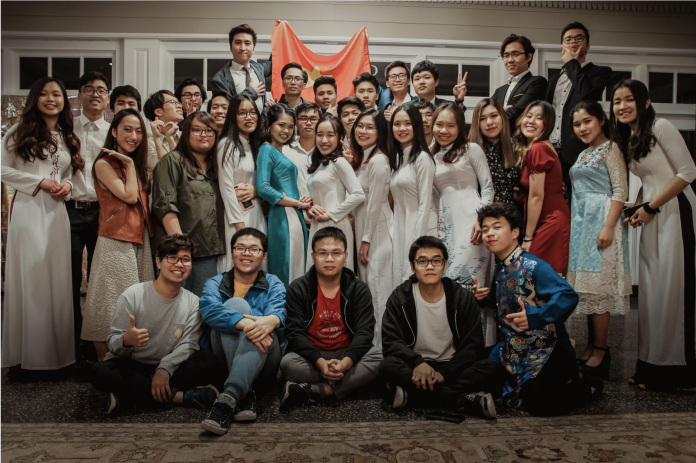
For the first time in DePauw's history, the Class of 2024 Convocation had a Vietnamese translator. In addition to this, DePauw published its international brochure in Vietnamese, and both of the co-presidents of the International Student Association are Vietnamese.
Historically, Chinese students enrollment has outnumbered international students coming from any other country. According to the Office of Admission, China’s student population comes in third, behind Indiana and Illinois.
Over the last two years, however, the number of students from Vietnam has increased and surpassed China.
The Class of 2022 welcomed only 5 Vietnamese students, and the Class of 2023 comprised 21 students from Vietnam. Remarkably, for the Class of 2024, Vietnamese students nearly doubled Chinese students in size: there are 29 Vietnamese compared to 16 Chinese.
Loutfi Jirari, the Associate Dean of Academic Life and Director of International Admission, believes that this upward trend is due to the shift in the modern Vietnamese family’s mindset. “Vietnamese parents place a high value on quality education, and they recognize the value of liberal arts education,” Jirari said. He also emphasizes the success of Vietnamese alumni who bring credibility to DePauw University among Vietnamese families.
After graduation, Linh Lam ‘20 successfully landed a job at Bank of America, even in the middle of the pandemic. As a woman in Tech, Lam felt encouraged and motivated during her time at DePauw.“The liberal arts education prepared me well for my adulthood,” Lam said. “I was not only able to sharpen my academic skills but also had a chance to widen my perspectives and embrace diversity through better writing, communication skills, and social knowledge.”
Vietnemese students cite the international admission’s efforts as a major contributor for enrollment. During the 2019-2020 academic year, the international admission conducted three recruitment visits and admission reception events in Vietnam..
First-year Duy Huynh indicated the main reason why he chose DePauw was because of the friendliness of the Admission Office. Before Huynh applied to DePauw, he contacted the admissions office, and they responded within two days. Huynh added, “my emails to other colleges took a lot of time to receive a response.”
First-year Vy Ngo, also from Vietnam, agreed that the admissions effort was influential. “I applied to several colleges, but none of them made me feel [as] warmly welcomed like DePauw,” Ngo said.
The Vietnamese community at DePauw University Fall 2019. Photo contributed by Linh Lam.
The DePauw international students body has increased from 2.9 percent of the total student population in 2007 to 13.5 percent in 2019.
Jirari highlights the benefits of diversity on campus, saying that it leads to personal and professional connections that students will carry with them throughout their career. “These interactions, discussions, exchange of ideas are vitally important to foster goodwill and build beneficial and peaceful relationships with nations across the globe.” Moreover, he also addresses the economic benefits of welcoming international students as they “contribute significantly to DePauw and to our local economy.”
Susan Wilson, Professor Emerita of Communication and Theatre Department, has worked with many international students throughout her teaching career. Wilson recalls the time when DePauw University first initiated the diversity and inclusion plan, which included the recruitment of more international students.
“When former President Robert Bottoms pledged to bring more diversity to DePauw University's campus, we were very excited, especially since we live in a small rural community,” Wilson said. “Their presence on campus has been exhilarating. The knowledge they have shared with domestic students and faculty is immense. Whether in the classroom as they discuss differences and similarities in their experiences or socially through events like the Internal Bazaar, they have been generous as they represent their cultures.”
